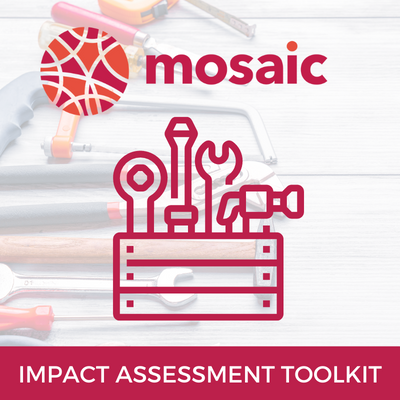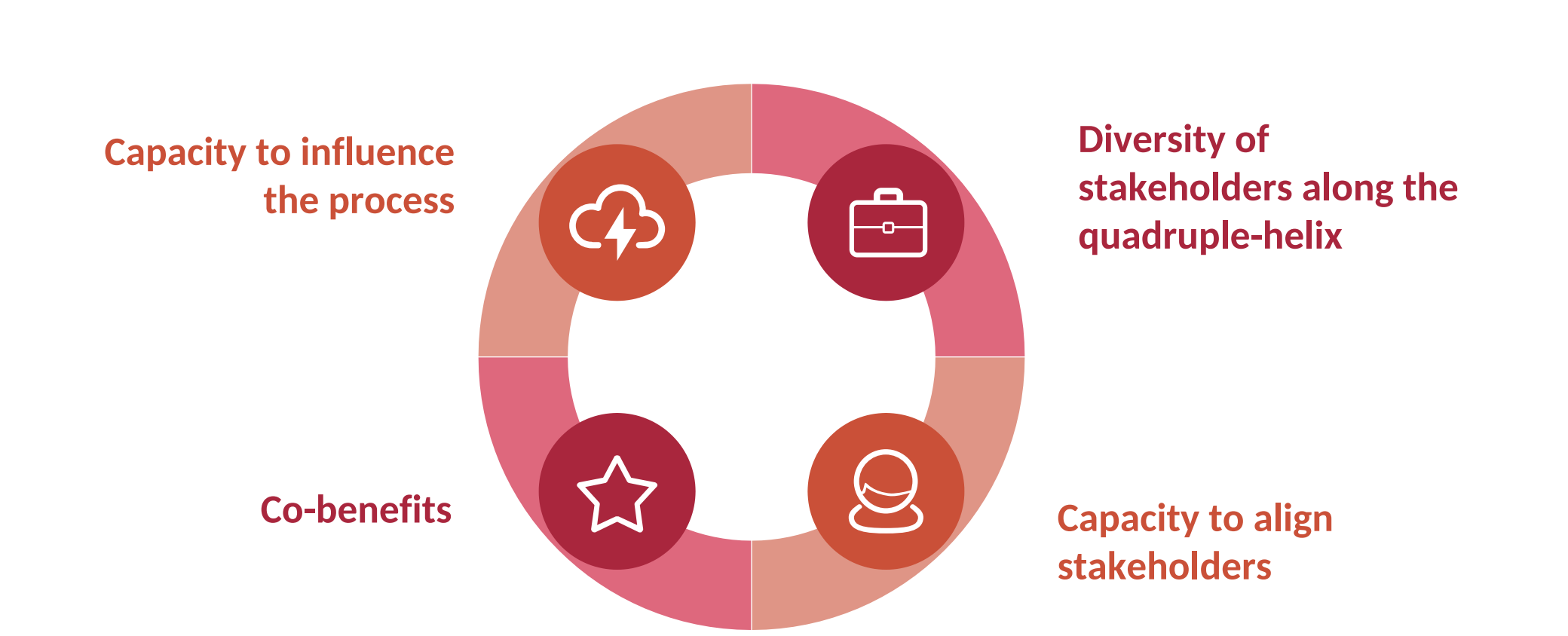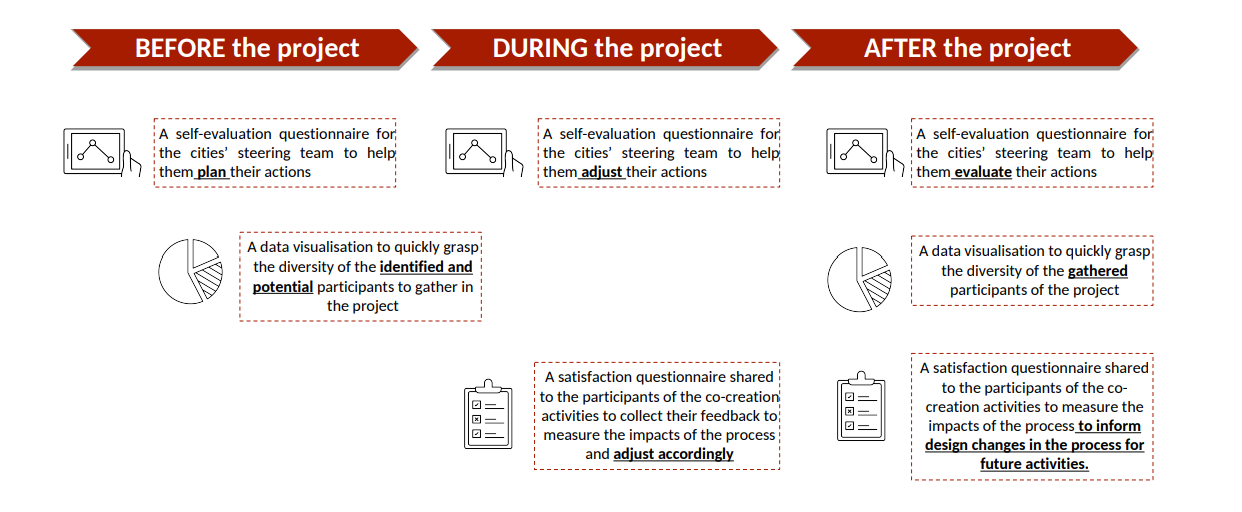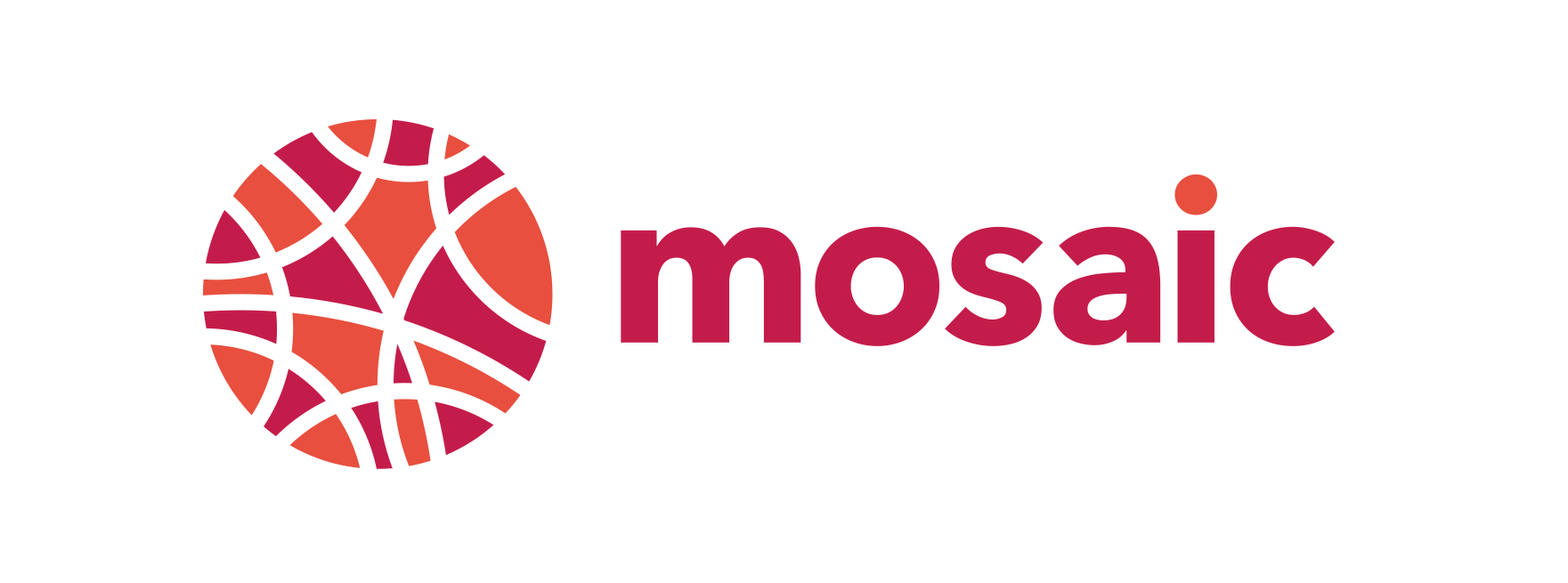Impact assessment toolkit
To support European cities in implementing a qualitative co-creation process, ultimately leading to impactful and meaningful co-creation activities, MOSAIC has developed an impact assessment toolkit.
From a research perspective, the MOSAIC Pilots in Milan and Gothenburg have served as experimental grounds to optimise the tools. By analysing our own experiences, MOSAIC will be able to offer guidelines and recommendations that assist cities in understanding and determining the most suitable settings and conditions for impactful and meaningful co-creation activities within various contexts.
The purpose is never to evaluate whether cities are doing things right or wrong, but rather to empower them to understand and identify the optimal conditions for the success of their co-creation activities.

Four indicators
The impact assessment toolkit allows cities to evaluate their co-creation activities based on four indicators, which represent fundamental principles found in any qualitative co-creation activities:

It allows all participants not only to contribute to the challenge faced by expressing and sharing their own vision and experiences, but also to have the opportunity to question and modify the co-creation process itself.
At each step of the process: having a diverse range of stakeholders brings forth a multitude of expertise, experiences, viewpoints, values and interests, thereby enriching the co-creation activities.
It involves fostering a mutual understanding of each other's concerns and perspectives, and fostering unity among participants towards a common goal. Given that participants in co-creation activities come from diverse backgrounds, it is crucial to anticipate and address potential issues that may arise during the process. These can include lack of understanding, divergent mindsets, conflicts of interest, and traditional mistrust between different stakeholder groups (such as undervaluing the expertise and experiences of citizens and civil society by academic or industrial players).
It encompasses the collective benefits defined by the group of participants and the aggregation of individual benefits, goes beyond the mere presence of diverse profiles. It is crucial to consider the specific interests and concerns of all participant categories and individuals during the process's design. This ensures that all stakeholders derive benefits from engaging in the co-creation process.
Three essential tools
The tools within the impact assessment toolkit were developed to be simple, user-friendly, and time-efficient for cities. The data required for these tools is readily accessible or easy to collect. The toolkit consists of three essential tools:

Self-assessment questionnaire for the cities
A set of self-reflecting questions for cities to help them design and plan their co-creation activities.

A data visualisation (pie chart)
A visual representation in the form of a pie chart to grasp the diversity of the gathered participants, fed by easy-to-collect data (number of participants in each category of the Quadruple-Helix)

A satisfaction questionnaire
A satisfaction questionnaire to be distributed among participants, allowing cities to gather valuable feedback on their experience.
Continuous assessment
These tools serve as steering mechanisms to guide the implementation of a qualitative co-creation process. Consequently, it is essential to use these tools consistently throughout the entire process, starting from the very beginning.

